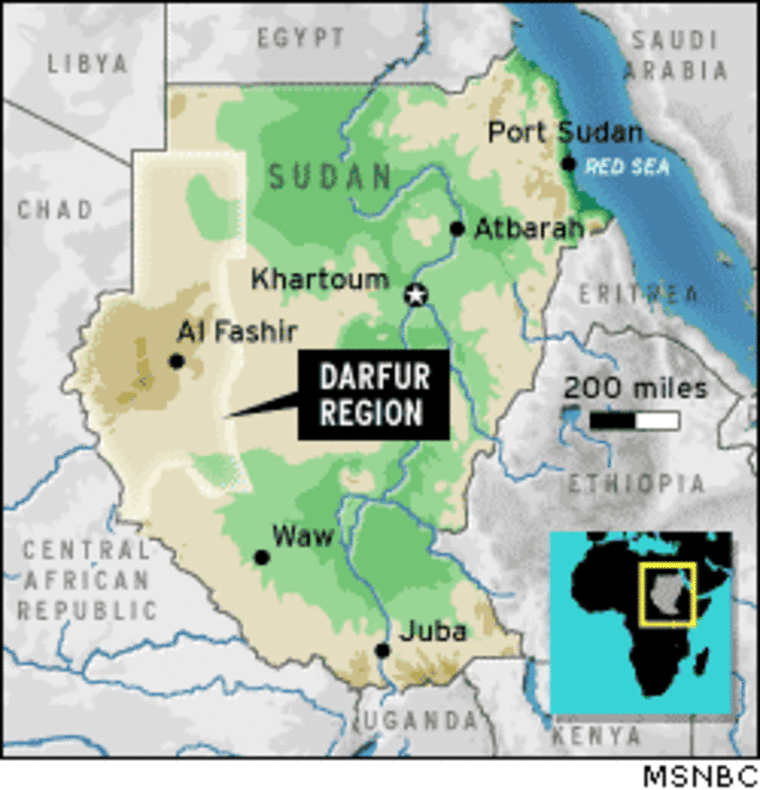British aid agency Save the Children is pulling its 350 staff out of Sudan’s Darfur region after the killing of four staff members in the past two months and with risks in the rebel area rising daily.
“We are devastated that we are unable to continue to offer health care, nutritional support, child protection and education to the approximately 250,000 children and family members served by our current programs,” said Mike Aaronson, director of Save the Children UK.
“However, we just cannot continue to expose our staff to the unacceptable risks they face as they go about their humanitarian duties in Darfur,” he added.
Two of the charity’s workers were killed on Dec. 12 in an attack the United Nations blamed on rebels fighting government forces in the region the size of France.
Two others were killed in October when their vehicle hit a landmine.
‘Difficult decision’
The top U.N. envoy in Sudan, Jan Pronk, expressed his regret at “the difficult decision” taken by the organization, and called on all parties to the conflict to abide by security agreements signed and international humanitarian law.

Tens of thousands of people have been killed and some 1.6 million forced to flee in nearly two years of fighting between rebels, government forces and Arab militias called Janjaweed.
The Khartoum government has rejected charges that it is backing the Janjaweed.
The African Union, which is trying to mediate, has said the region is a ticking bomb with vast quantities of arms and ammunition flooding in.
Earlier this month the head of British aid charity Oxfam was forced to quit Sudan after being accused of working under the wrong visa.
“This is not just about one agency deciding to leave. This a very worrying time for the whole relief operation,” Aaronson said.
He said a shaky cease-fire was being broken by all sides and banditry had become commonplace, and accused the international community of being ineffectual.
‘Complete breakdown of law and order’
“There is a complete breakdown of law and order. There are no front lines, and you are never sure who you are talking to at the side of the road.
“This is a wake up call for the U.N. Security Council. The pressure has to be applied to all the parties to this conflict to agree a meaningful ceasefire so that agencies can reach the people in need.”
Aaronson, who was in Darfur last week, said that children were not only being caught in the crossfire but were also being deliberately targeted -- without saying by which of the warring parties.
Underlining the degree of danger in Darfur, Oxfam regional director Caroline Nursey said her staff there had been forced to move around in U.N. helicopters because the roads were unsafe.
“For the people of Darfur there needs to be an immediate end to the violence,” she said, adding that the charity would remain in Darfur.
The United Nations has described Darfur as one of the world’s worst humanitarian crises, with some 2.3 million people reliant on aid to survive.